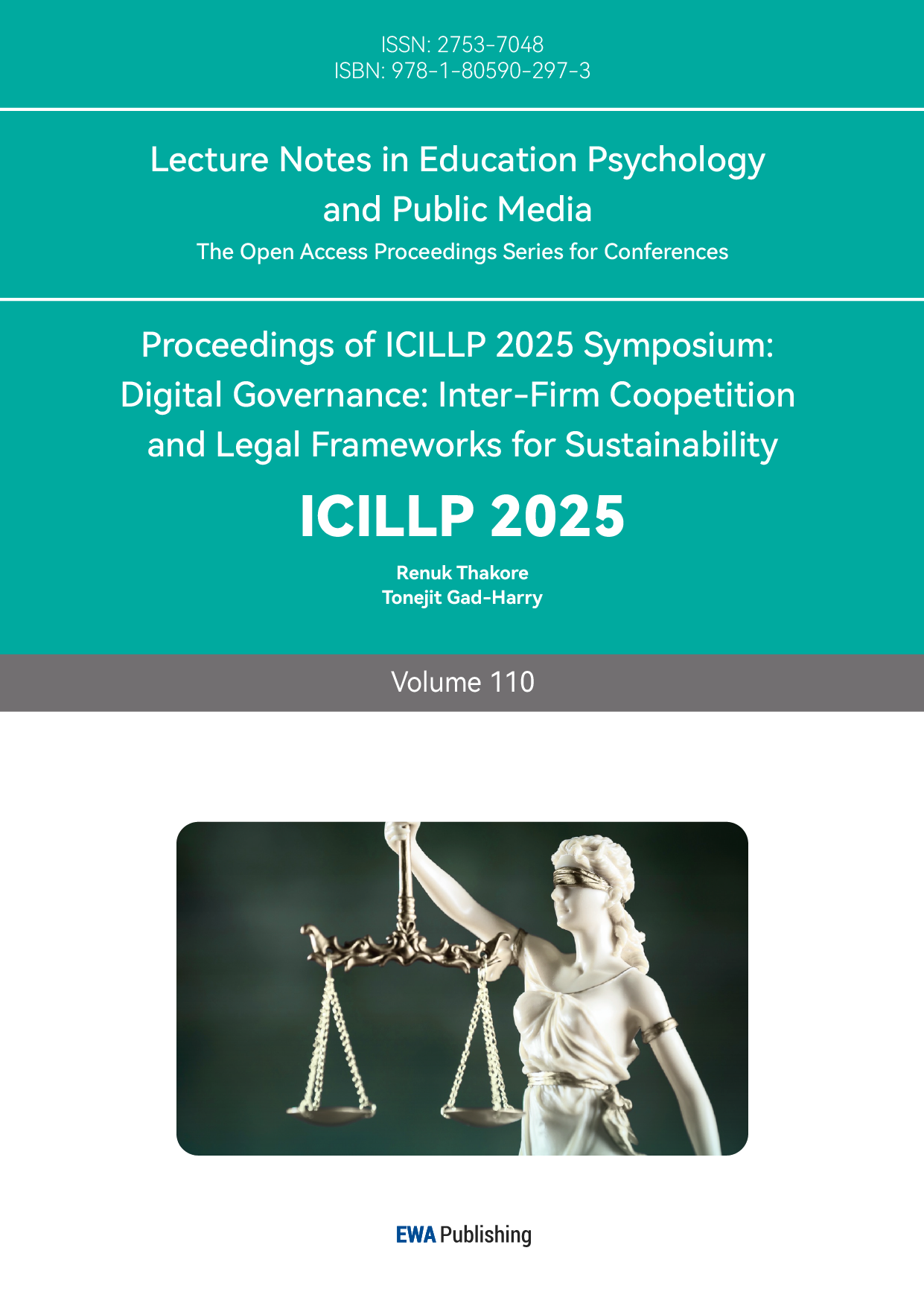References
[1]. Yifan Liu. (2025) The Limits of Applying Artificial Intelligence to International Commercial Arbitration. Journal of South China University of Technology (Social Science Edition), 3, 25-37.
[2]. Xiaohong Liu, Shuo Feng. (2024) International Commercial Arbitration in the Context of Major Transformations: Global Trends and China's Response. Chinese Social Sciences, 12, 63-82.
[3]. Lixing Zhang (2017) Innovation and Practice in Internet Arbitration in China: A Case Study of the Shenzhen Court of International Arbitration. China Marine Shipping, 1, 74-76.
[4]. Yusu Tian. (2022) The Impact of Artificial Intelligence on International Commercial Arbitration. Arbitration and Law, 1, 35-47.
[5]. Zhishuai Hou, (2024) Chunliang Zhang. Towards the Metaverse Era: Transformation and Reconstruction of International Commercial Arbitration. Journal of Beijing University of Posts and Telecommunications (Social Sciences Edition), 5, 51-61.
[6]. Li Zhang. (2021) International Commercial Arbitration Faces Revolutionary Challenges and Opportunities: CIETAC Releases "China International Commercial Arbitration Annual Report (2020-2021)". China's Foreign Trade, 10, 30-32.
[7]. Huangan Fu, Xiaofu Li. (2020) Application, Challenges, and Solutions of Blockchain in International Commercial Arbitration. Journal of Shanghai Business School, 6, 86-96.
[8]. Jian Zhao. (2023) International Commercial Arbitration: Global Trends and China's Response. Arbitration and Law, 1, 3-25.
[9]. Huici Yu, Dan Wei. (2024) Analysis of Arbitrators' Legal Liability Issues under AI-Assisted Arbitration. Journal for Party and Government Cadres, 11, 68-75.
[10]. Yuchen Li. (2023) Research on the System of Arbitration Information Security Measures from the Perspective of International Commercial Arbitration. Commercial Arbitration and Mediation, 5, 58-80.
[11]. Junbin Zhang. (2023) International arbitration faces the wave of a new round of technological revolution. China Youth Daily, 6, 1-3.
[12]. Zhenguo Wu. (2025) Research on the Controllability of Artificial Intelligence-Assisted Arbitration Trials in Reviewing Evidence. Journal of Shanghai University of International Business and Economics, 2, 85-95.



